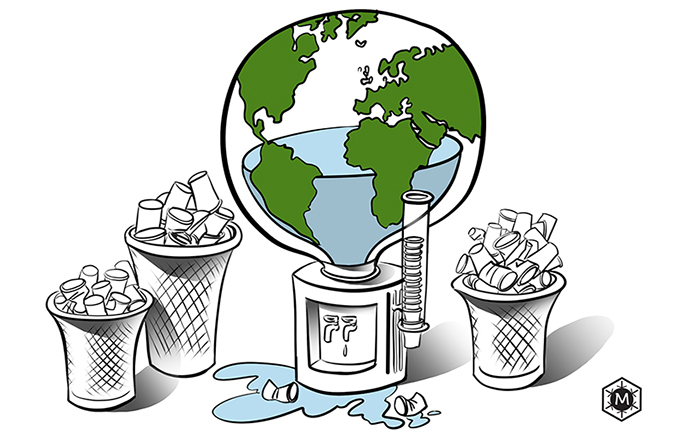Trump & co have nothing to defend in S. China Sea
 |
|
Rex Tillerson, the former chairman and chief executive officer of Exxon Mobil, testifies during a Senate Foreign Relations Committee confirmation hearing to become US Secretary of State on Capitol Hill in Washington, Jan 11, 2017.[Photo/Agencies] |
There can be little doubt that, like Taiwan, the South China Sea has the potential to become a wild card in Washington's strategic game with Beijing.
And there certainly exists the worst-case probability of a destructive showdown between China and the United States, should the provocative "access denial" approach advocated by new US President Donald Trump's pick for secretary of state Rex Tillerson be embraced as US policy.
So it is only natural that, amid the lingering anxieties produced by Tillerson's remarks, White House spokesman Sean Spicer's vow on Tuesday to "protect" US interests and "defend international territories" has been interpreted by some as signaling an increased possibility of confrontation.
It is always advisable for decision-makers to take into account least desirable likelihoods. But it is equally, if not more, dangerous to be preoccupied with pessimistic assumptions as they can all too easily become self-fulfilling.
It is tempting to frame China-US interaction as zero-sum rivalry. But the diplomatic reality that is unfolding does not have to follow that script.
And a cool-headed reading of Spicer's comments substantiates the unlikelihood that China and the US are going to engage in armed conflict in the South China Sea.
Spicer did say the US will protect its interests there. But that is no cause for a military confrontation with China. Legitimate US interests in the South China Sea boil down to what it calls "freedom of navigation and over-flight". There is nothing to suggest China threatens these.
More importantly, Spicer's statement was based on a huge "if": a question of if those isles and reefs are in fact in international waters and not part of China. He was believed to be referring to reefs where China has constructed civilian and defense facilities.
Trump and his team have referred to these as huge fortresses. But the reality is far different as a look at well-publicized satellite photos show.
It is true that China's reefs have changed, this is not only part of its desire to demonstrate its long-standing sovereignty claims, but also because of its greater ability and willingness to provide public goods, in this case, for fishing and navigation safety.
If there is to be "war" in the South China Sea it will be because of actions by the US military.
US South China Sea expert Mira Rapp-Hooper was right when she pointed out that Tillerson's remarks had no basis in international law and a US naval blockade would be "an act of war".
Unless Washington can establish exactly what US interests are threatened and how, there is nothing for it to aggressively "protect" or "defend".
- Ethics lawyers to sue Trump over foreign payments
- Trump takes US out of TPP
- US Senate committee backs Tillerson as Trump's secretary of state
- Trump signs executive order to withdraw US from TPP
- Trump summons business leaders, lawmakers to White House
- White House vows to fight media 'tooth and nail' over Trump attacks



















